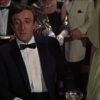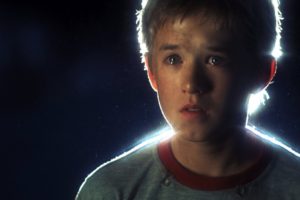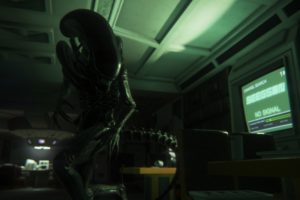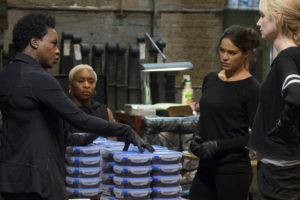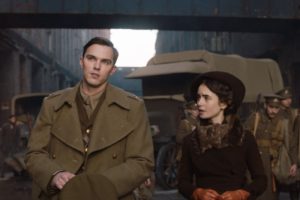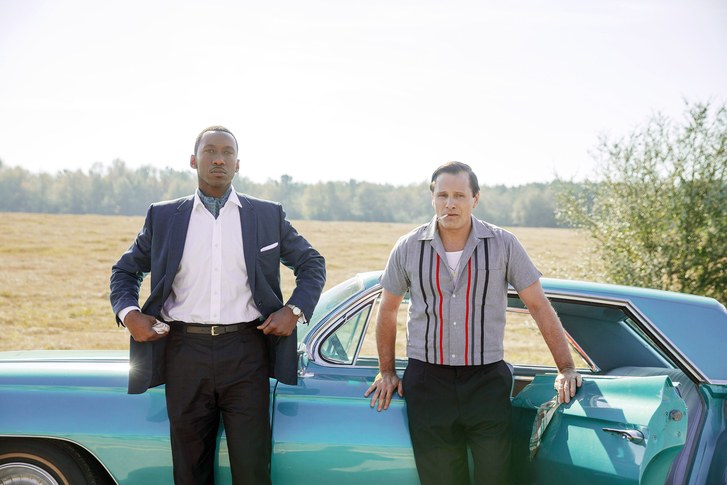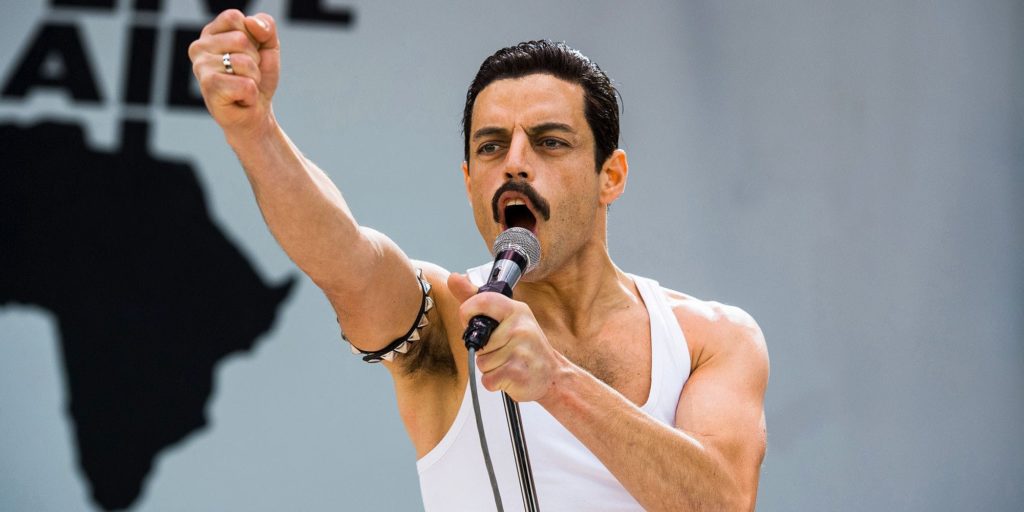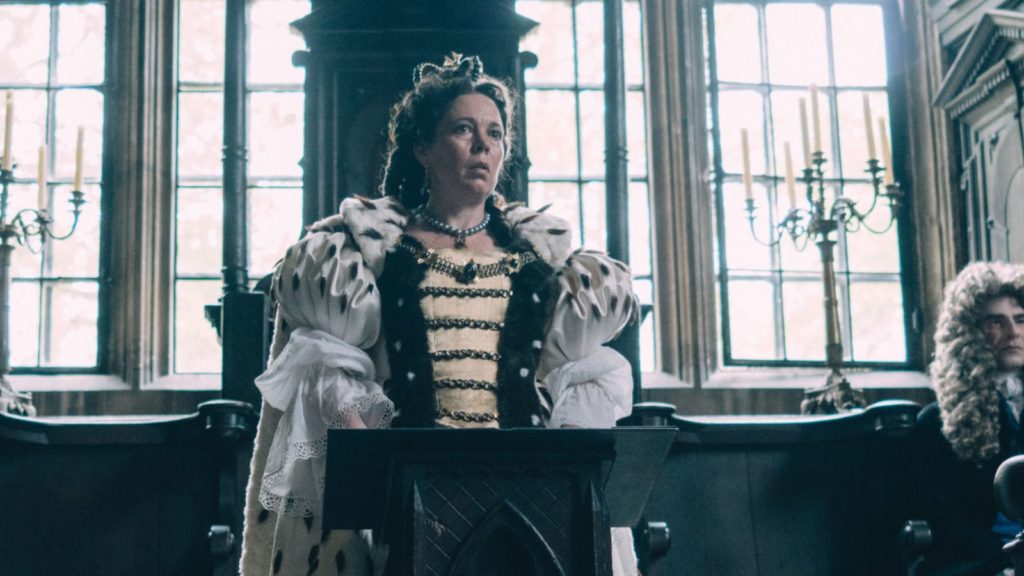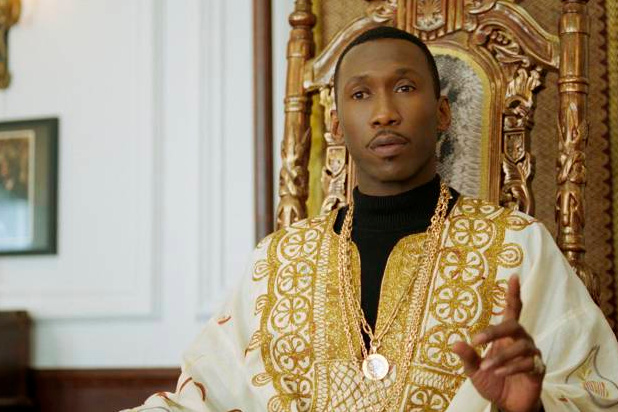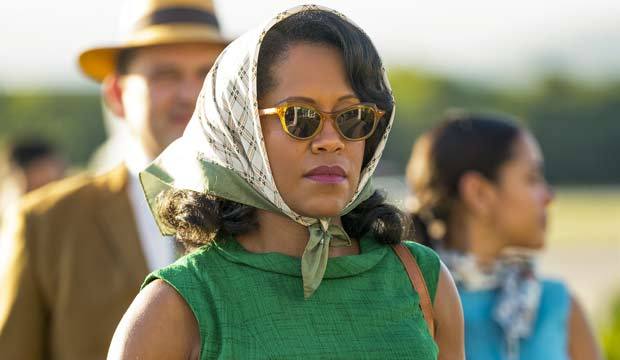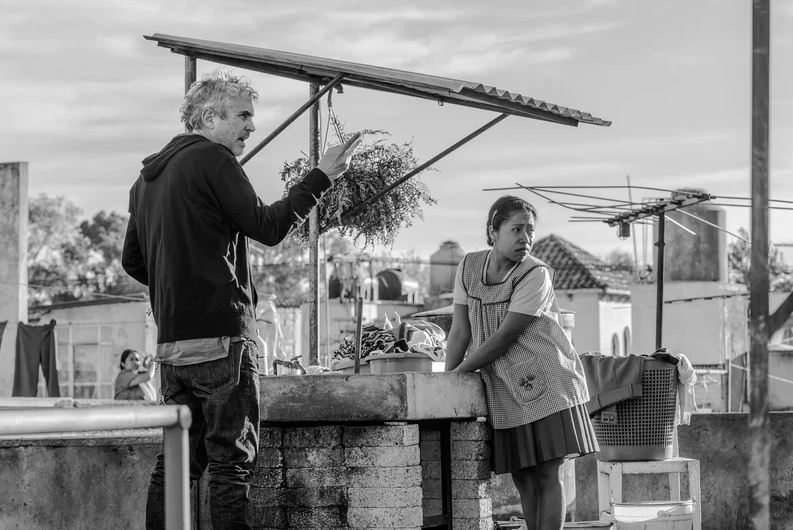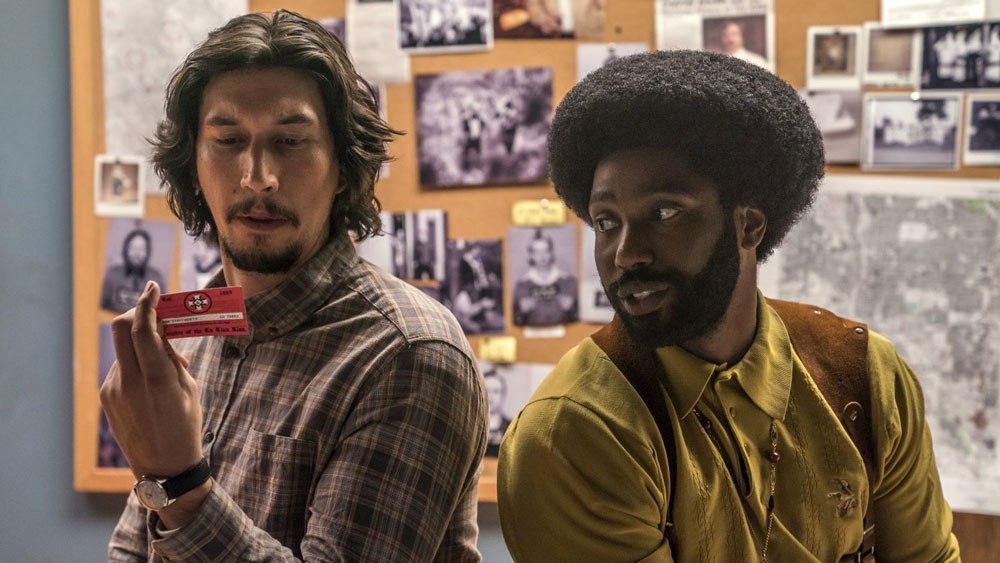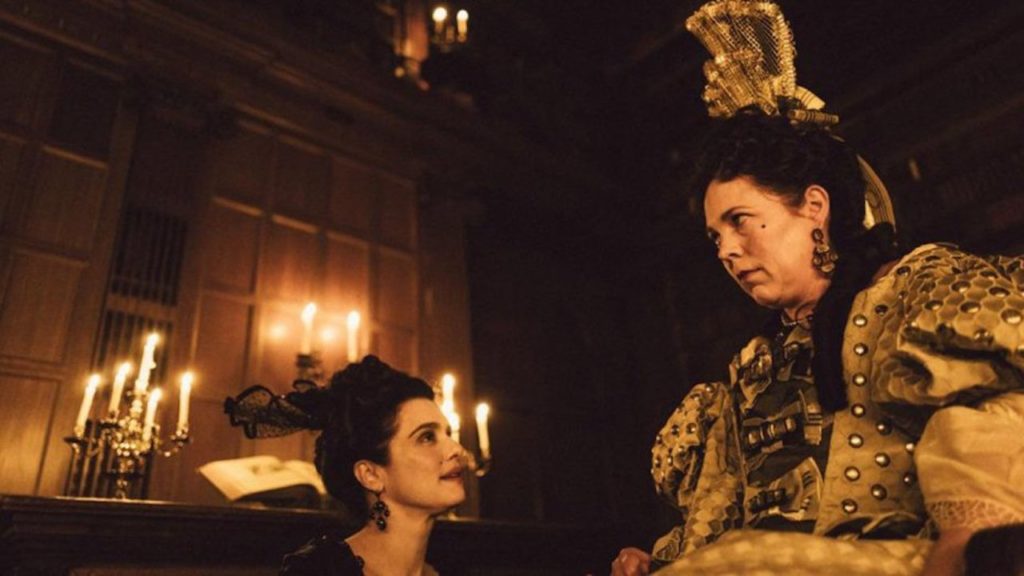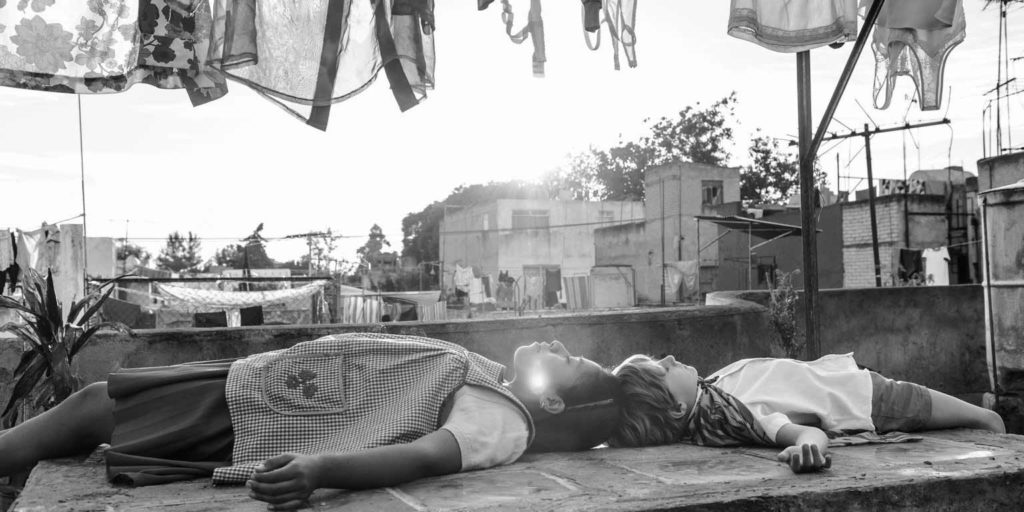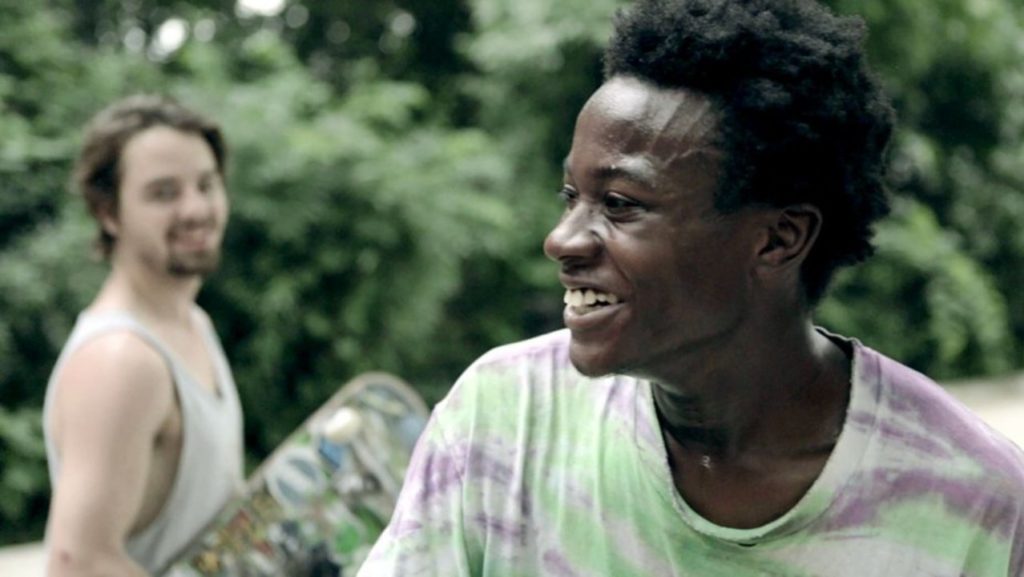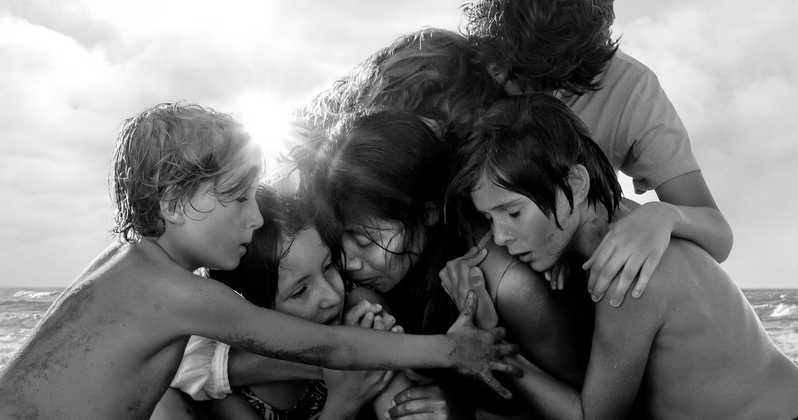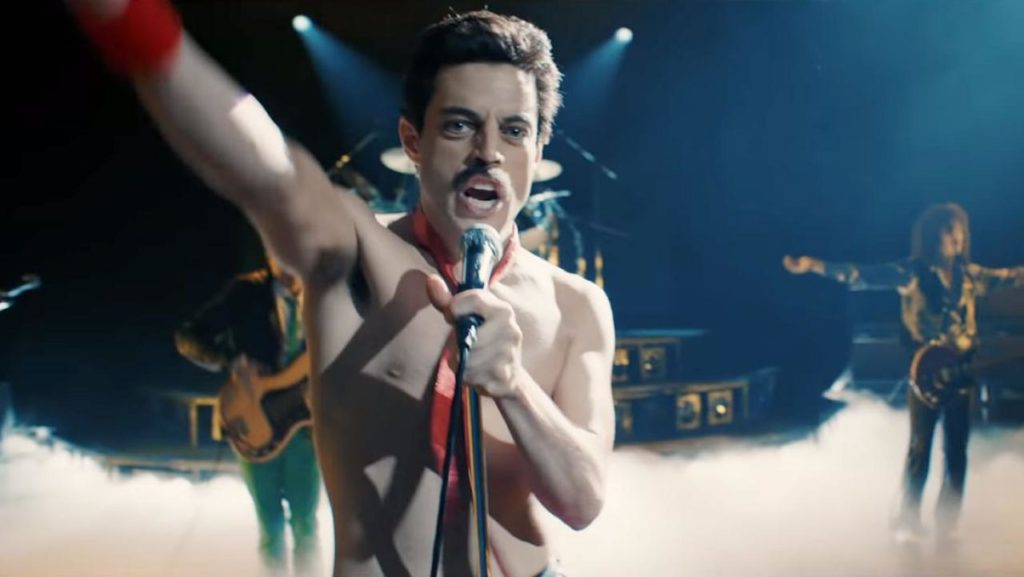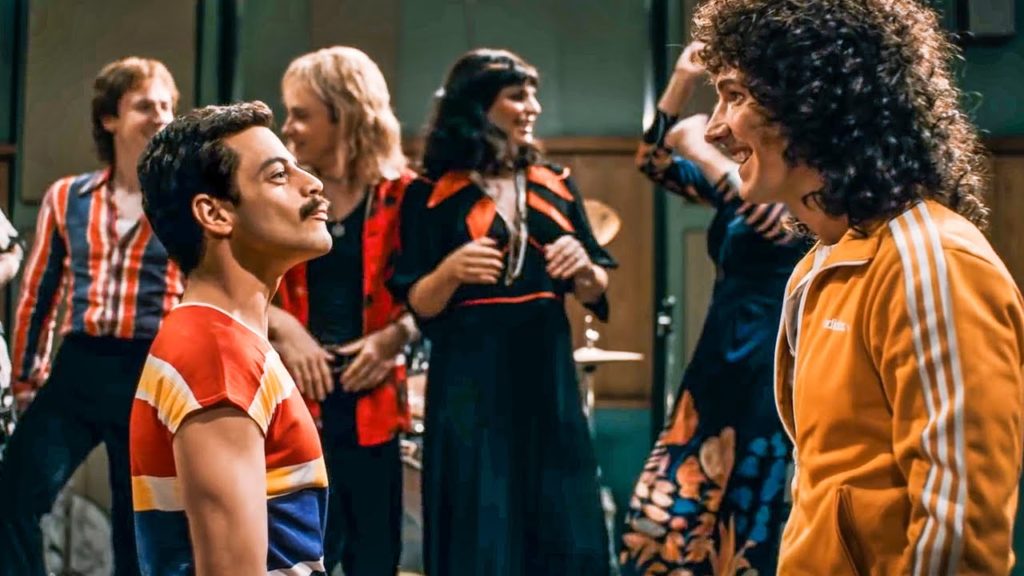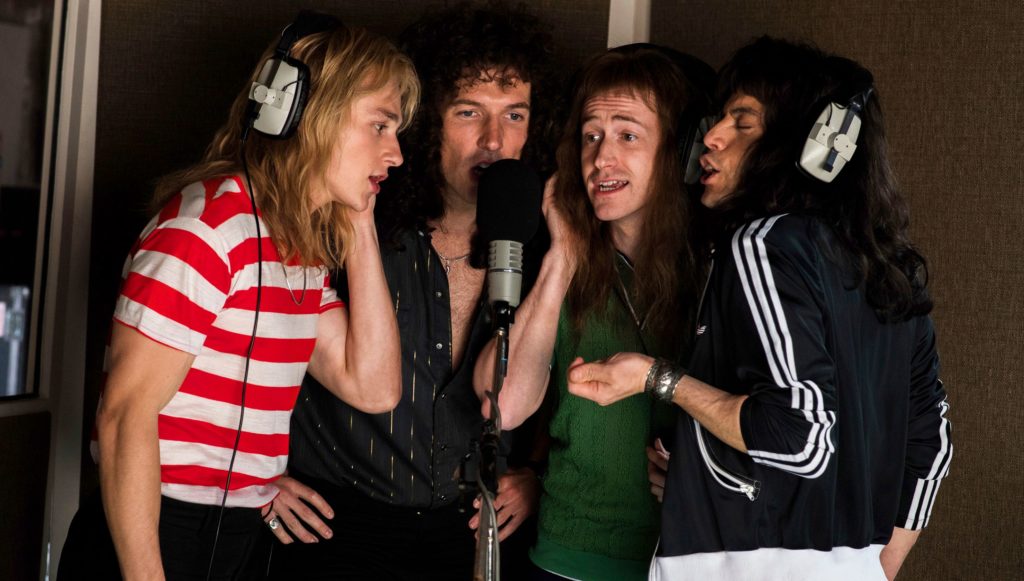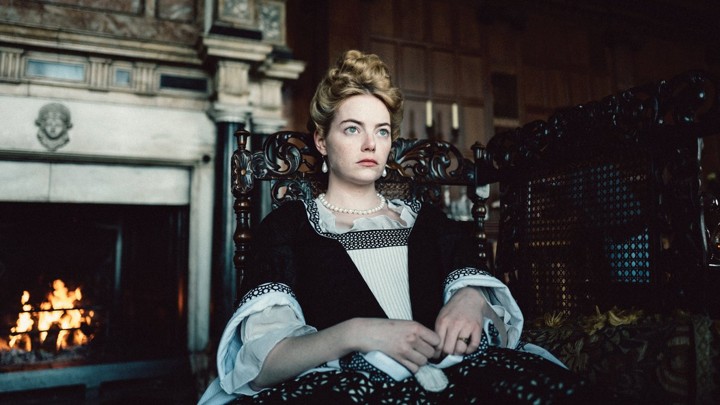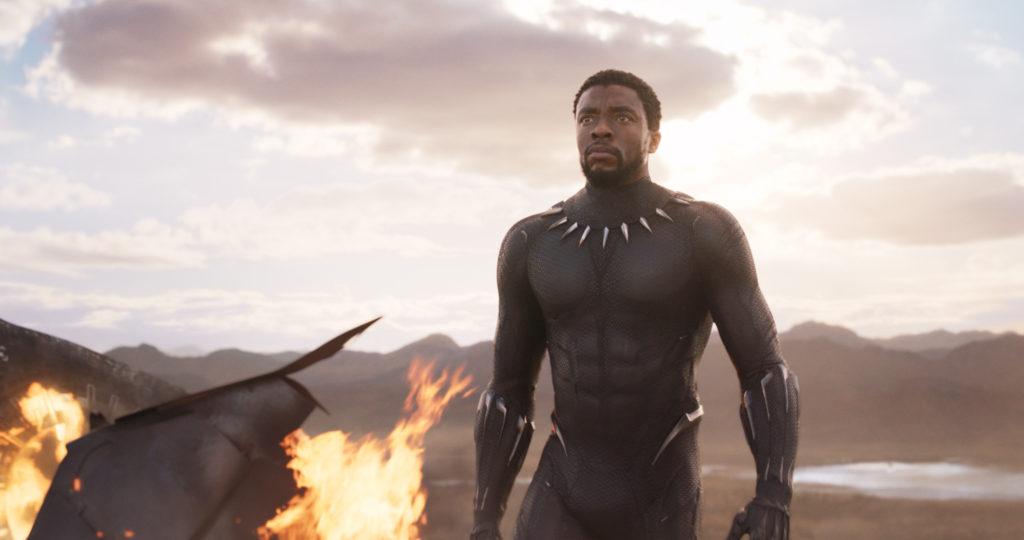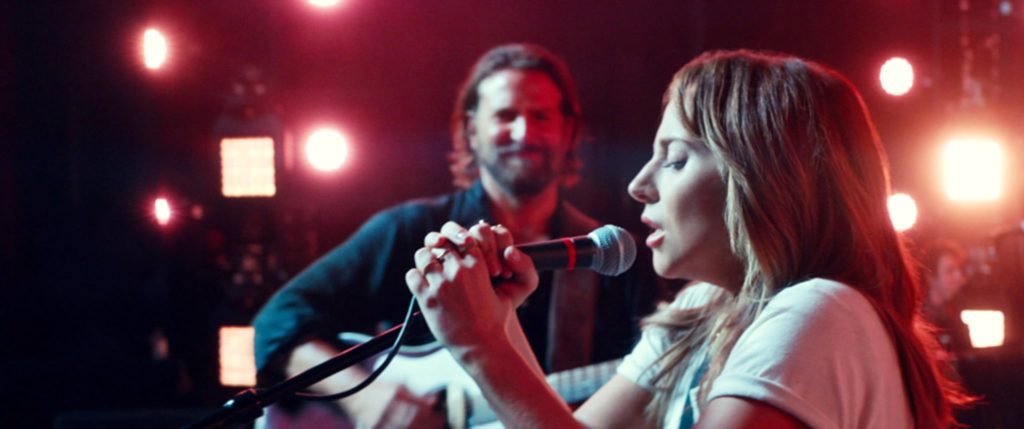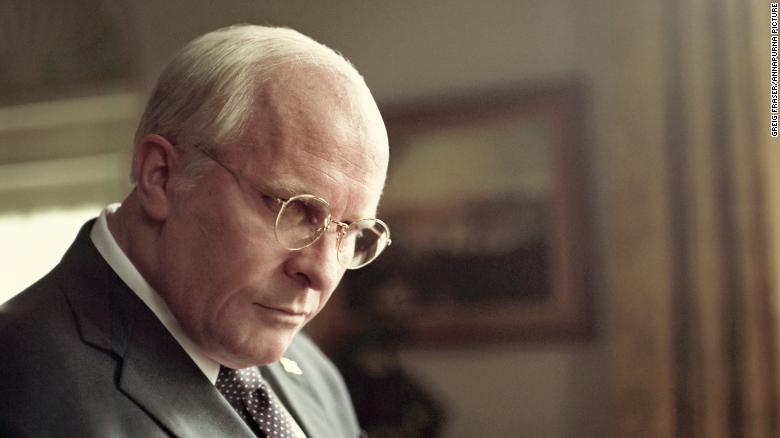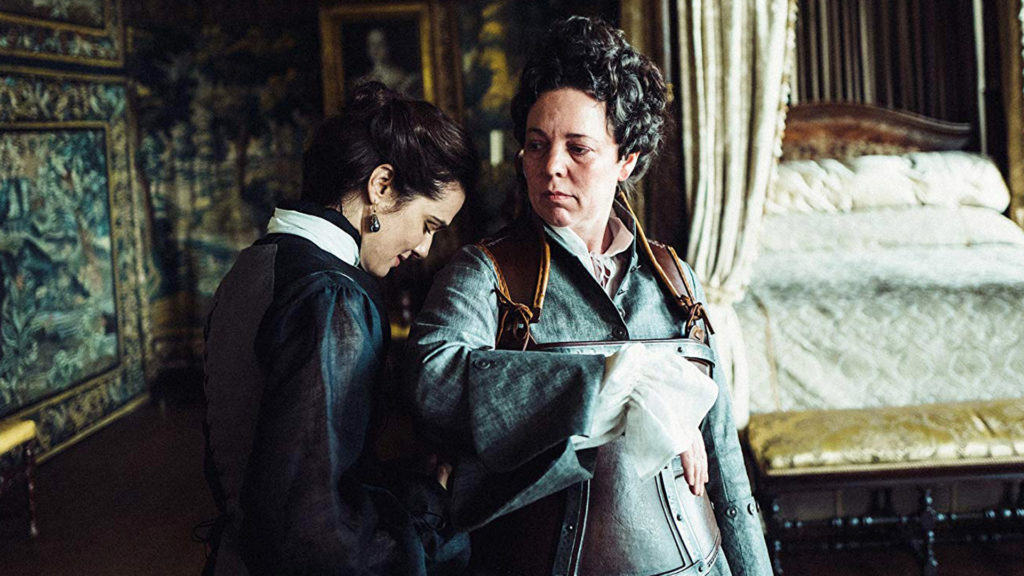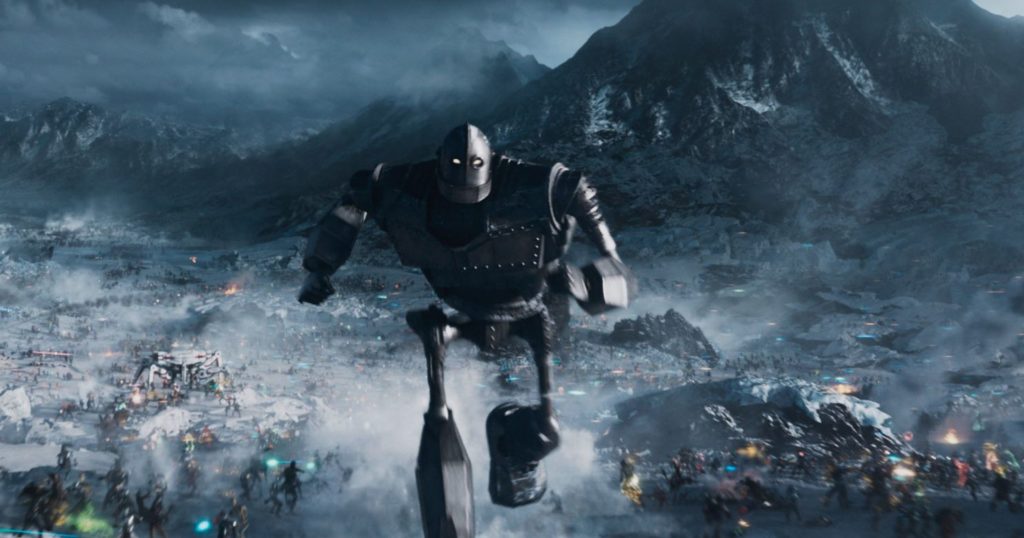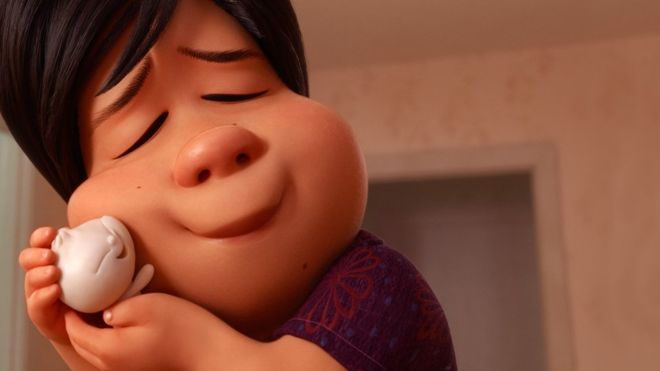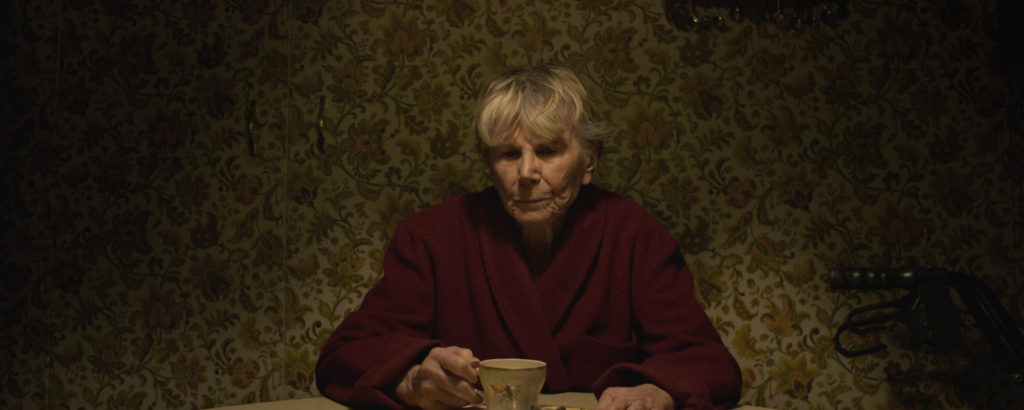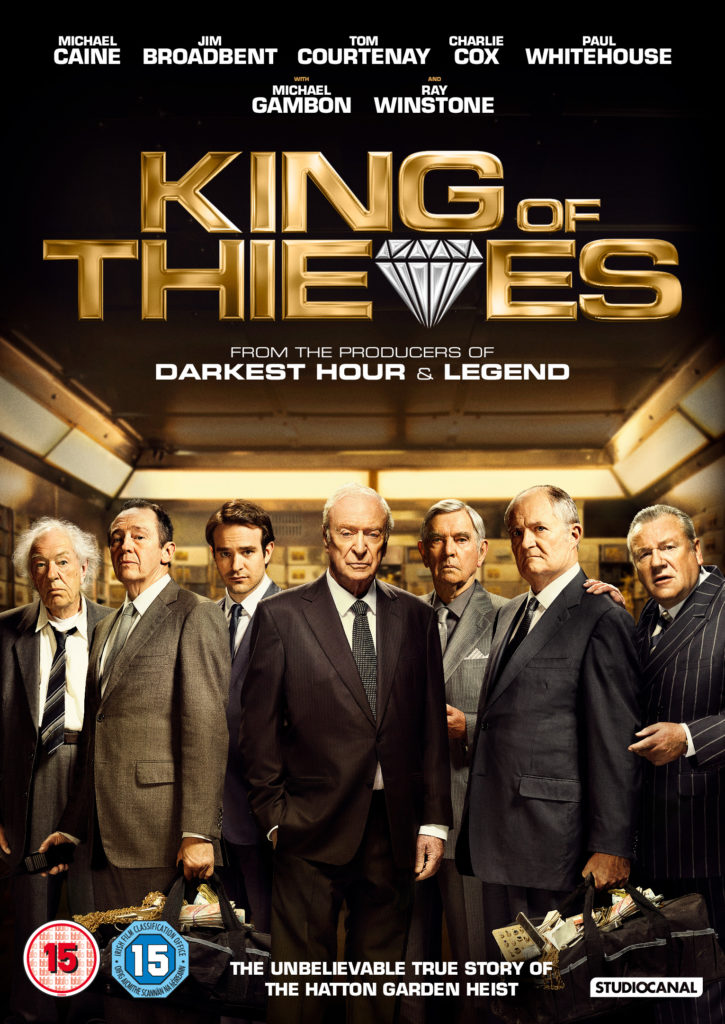Why I Love is a new regular essay feature on the site in which I explore films that have become firm favourites, looking at why they have stuck with me in particular and what I think makes them so special. Warning: There will be full-on spoilers for the films discussed.
I first saw director Andrew Dominik’s The Assassination of Jesse James by the Coward Robert Ford on a Friday afternoon back in October 2007. It was a year especially packed with quality cinema, two of which exist in the same Western realm as this film: Paul Thomas Anderson’s There Will Be Blood and the Coen bros’ No Country for Old Men. All three films received huge critical acclaim and went on to Oscar status. But while those other two films remain masterful pieces of cinema, each grandiose and penetrating in their own ways, The Assassination of Jesse James, based on the book of the same name by Robert Hanson about (roughly) the last year in the life of America’s most notorious Western outlaw, is the one that has most gotten under my skin and has worked its way into my list of favourite films ever made.
When I walked out in awe of that afternoon showing a decade ago, I knew I had seen something special. Something about the mood of the film, the atmosphere of longing and regret and beauty set against violence got to me in a way few other films have. The word masterpiece gets thrown around a lot, so much that it has begun to lose its weight and transformed into mere hyperbole, but I truly believe Dominik’s late-19th century set Western to earn that label.
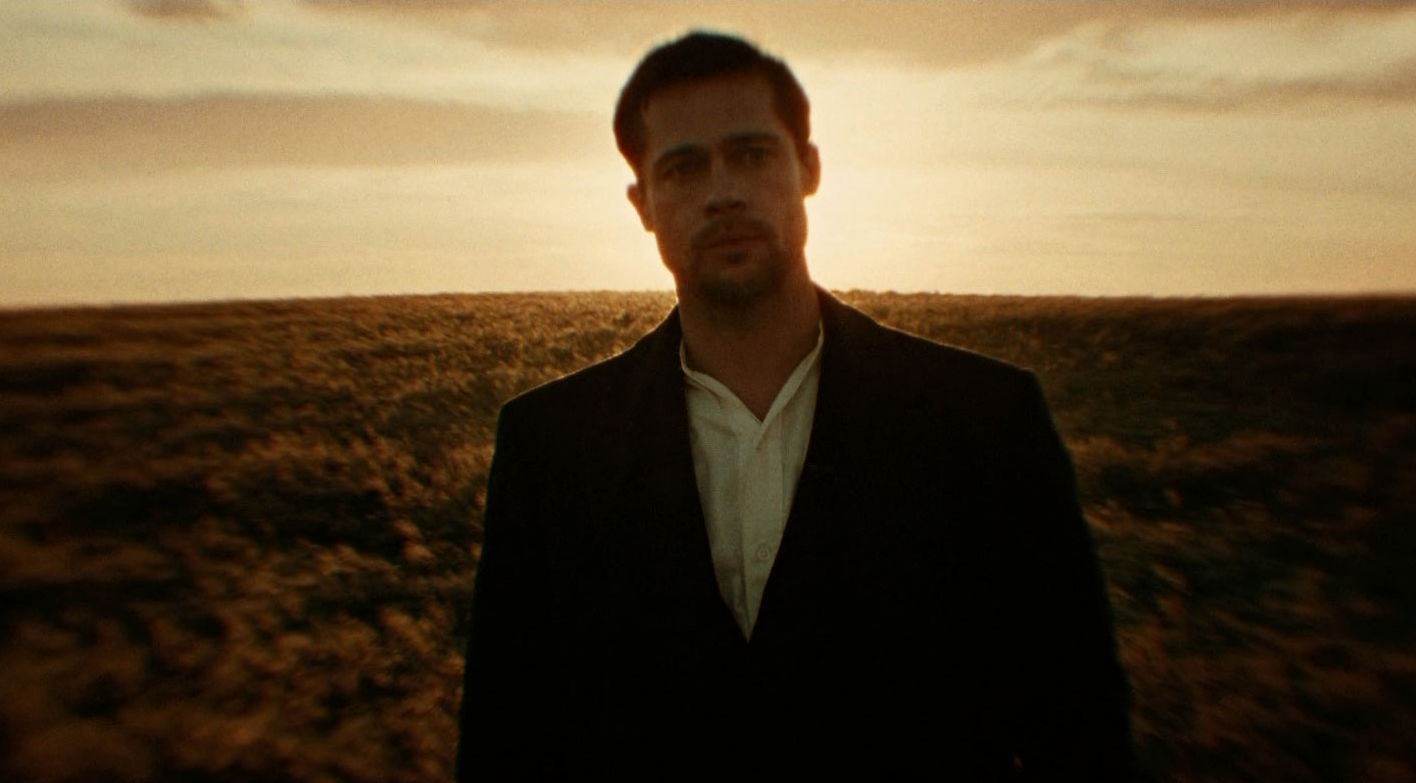
The Assassination of Jesse James is a gorgeous piece of work, absolutely stunning on a technical level, with visuals and sound marrying beautifully to create a hypnotic atmosphere that lulls us through the narrative’s purposefully languid pace; for me I welcome to the chance to just be with a film for however long it takes, in this case a fairly hefty two and a half-plus hours. Evoking the early work of Terrence Malick, in particular Days of Heaven, the resplendent cinematography by perhaps the greatest living cinematographer, Roger Deakins, paints this potentially cold world of violent train robberies, celebrity obsession and ultimate disillusionment with sumptuous contradictory blues and oranges, each frame a fitting prospect to be framed on a wall in its own right. Its visual style is eye-catching but never in a obtrusive way, showcasing woozy imagery often blurred at the edges – Deakins actually created lenses specifically for the film – to create the effect of a dream or as if we’re witnessing the memory of something that happened a long, long time ago. It’s often accompanied by narration, the deep but warm tones of voice-over artist Hugh Ross functioning as a historical storyteller telling tales around a campfire.
The sheer mastery of Deakins’ cinematography is exemplified in the train robbery scene that occurs not long into the film. Jesse (Brad Pitt, in a career best performance), his big brother Frank (portrayed by the late-great Sam Shepard) and a “gang of petty thieves and country rubes culled from the local hillsides” prepare for the arrival of a train filled with passengers and the potential for a $100,000 score. The scene is shrouded in near-darkness, Jesse lying with his ear pressed on the tracks waiting for the rumble of the train. And then it appears from out of the darkness. It grinds to a halt to avoid the obstruction Jesse has set up, the light from the front illuminating the gang and Jesse in particular as he stands aloft. Smoke billows out and, in a shot that Deakins himself has remarked as one of his finest career moments, Jesse walks through the smoke with his face covered and two guns held out. No matter how many times I see it, that moment always gives me goosebumps.
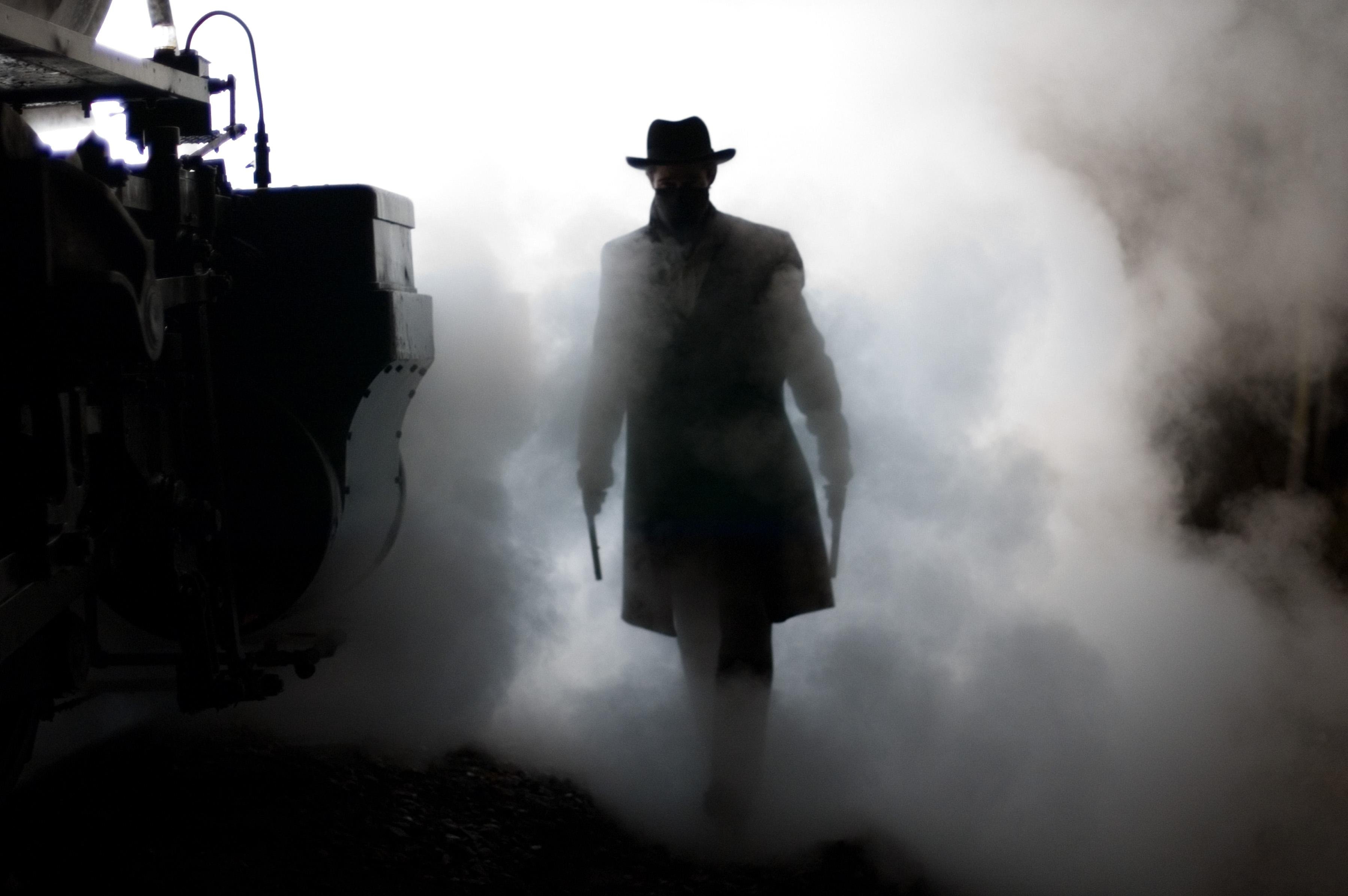
Music is a crucial ingredient in what makes the film so effective. Composed by stalwart collaborators Nick Cave and Warren Ellis – who also created the music for the likes of The Proposition, The Road, Hell or High Water and this year’s Wind River – the soundscape is at once epic and intimate, grand and tender, seeming to perfectly encapsulate whatever scene it’s accompanying. There’s a timeless quality to it, both yearning for the period setting of the film and yet hauntingly relevant when watching it today. It also manages to be both eclectic – for example the tinkling sounds of “Song for Jesse” standing in stark contrast to the sorrowful piano strikes and mournful elongated violins of “What Must Be Done” – and yet exquisitely of a piece. I have listened to it countless times independently from the film and never get tired of it.
The film has a perfectly assembled cast of wonderful actors, from Brad Pitt and Casey Affleck at the core of the tale and an array of peerless modern character actors manoeuvred around the story like chess pieces, from Jeremy Renner and Sam Rockwell to Garret Dillahunt and Paul Schneider. It’s a film that gives greater shades of depth than you might expect from the genre to its supporting characters, drawing more specifically defined lines that take them beyond the typical archetypes. You feel like you know this ragtag group of outlaws as they shoot the shit around the campfire before a job or when they eventually face the wrath of Jesse’s suspicion that they might have turned on him.
Take Dillahunt for example, who plays Ed Miller, the most soft spoken and nervous of the gang. When Jesse heads out to visit him at his humble farm, he is petrified that the famous outlaw might be there to kill him despite Jesse just “happening by.” The look of desperation, fear and sadness mixed together in Dillahunt’s eyes at that moment is heartbreaking and you get this feeling that, one way or another, he’s not leaving Jesse’s company alive. Sure enough we find out later on, via a night-time chat with Robert’s increasingly fearful brother Charley (Sam Rockwell), Jesse lured Ed away from his home on a promise of dinner only to shoot him in the back of the head in the dead of night. The film pays attention to those who support the titular duo in a way that makes for hugely satisfying viewing again and again.
Casting Pitt, one of the most famous celebrities in the world as America’s most famous outlaw and arguably the first ever celebrity in the modern sense, was a stroke of genius. For my money this is the crowning glory performance of Pitt’s career thus far, as commanding of the screen with a silent, soulful stare sitting in his rocking chair as he is in volatile outbursts as he becomes more and more paranoid that his closest friends have betrayed him. It makes us understand this man for who he was, a puzzle of a man with often confounding conflicting behaviour, the potential to be extremely hostile but also gentle when it’s called for, proud of his so-called accomplishments of robberies “and the seventeen murders that he laid claim to” but contemplative “of that man that’s gone so wrong.” He loves his kids but they don’t even know his name. Undoubtedly the film makes us understand that Jesse James the legend and Jesse James the man are two very different prospects.
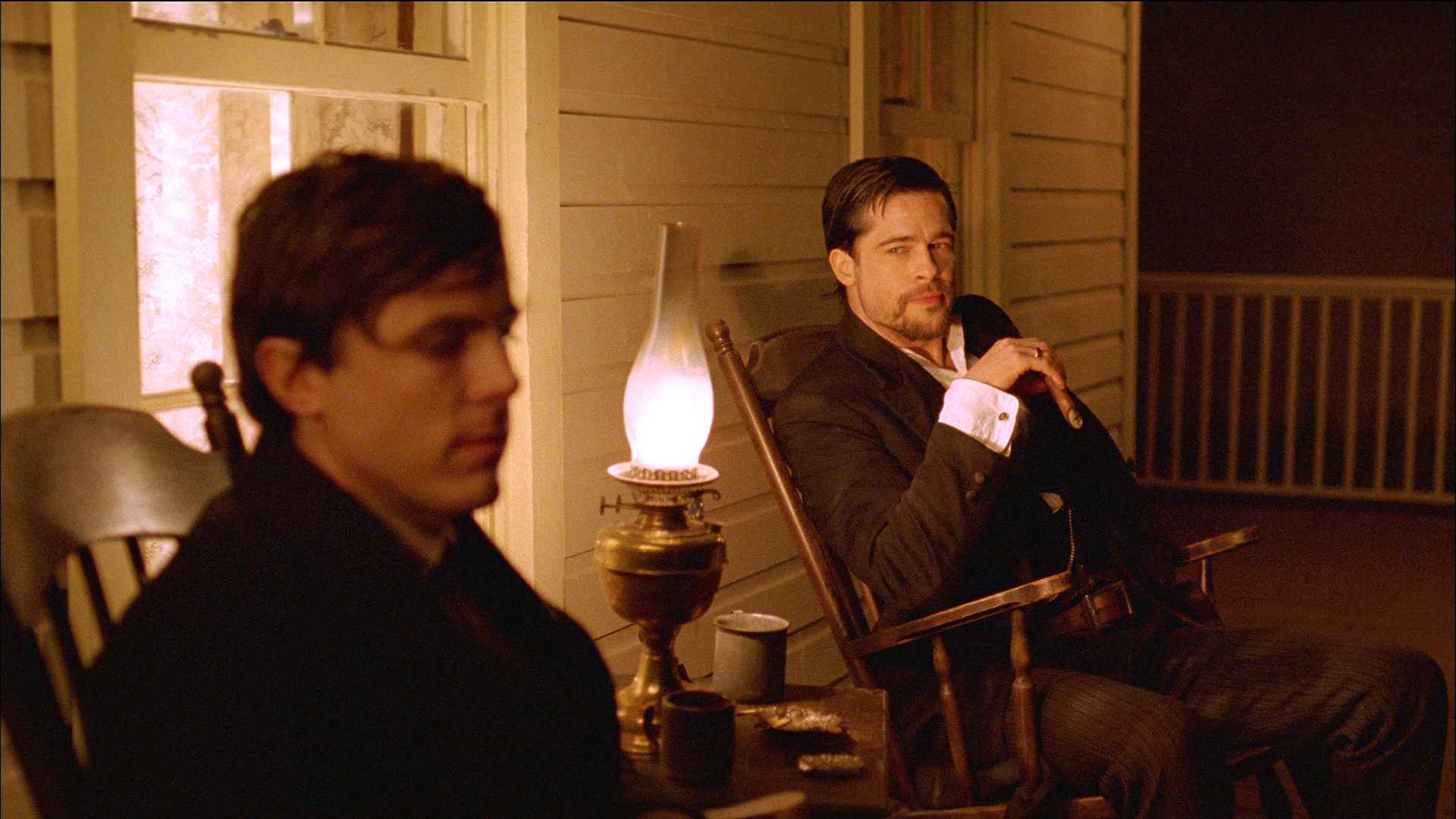
Affleck (who received a more than deserved Oscar nomination for his performance) is absolutely fascinating as the so-called cowardly 19-year-old Robert Ford. He’s antsy and maybe even a little unsettling throughout but also measured in how he acts around people, putting on a façade for a man he has held up like a god since childhood. “Many’s the night I stayed up with my eyes open and my mouth open just readin’ about your escapades,” he excitedly relays to Jesse in one scene as the two sit together on a porch smoking cigars. “It’s all lies, you know,” Jesse retorts. There’s a little pause in which we can see the disappointment in Bob’s eyes before he reverts back behind that smokescreen of grown-up coolness cultivated to feel part of the gang, to hide his immaturity and to function as someone Jesse can count on moving forward.
The Assassination of Jesse James is about many things: obsession, loneliness, the need to fit in, misplaced infamy and assumptions, the wandering existence of outlaw life on the great American frontier and the idea of moulding your life into something that you think it should be rather than what it ought to be. But above all it’s about the nature of disillusionment, about succumbing bitterly to the idea that what you once held as sacred being unveiled as anything but. It may be the film that most perfectly encapsulates the phrase “you should never meet your heroes.” We can see this in Bob’s always changing or degrading view of Jesse, as if a protective wall of idolization is being knocked down brick by brick. Jesse was everything to Bob as far back as he can remember and would still keep a treasure trove of stories in a tin box under his bed. In one of the film’s pivotal scenes – where as much gets said with stares between the eponymous twosome as spoken dialogue – Jesse visits for a late night dinner at the house where Bob, Charley and the hitherto unseen brother Wilbur (Pat Healy) are staying. With a mix of trying to hide the fact that Bob and Charley were present for the killing of Jesse’s cousin Wood (Jeremy Renner) at the hands of the slimy Dick Liddil (Paul Schneider) and continuing the spirit of merciless teasing about Bob’s obsession with Jesse, he is asked to tell the outlaw about how much they have in common.
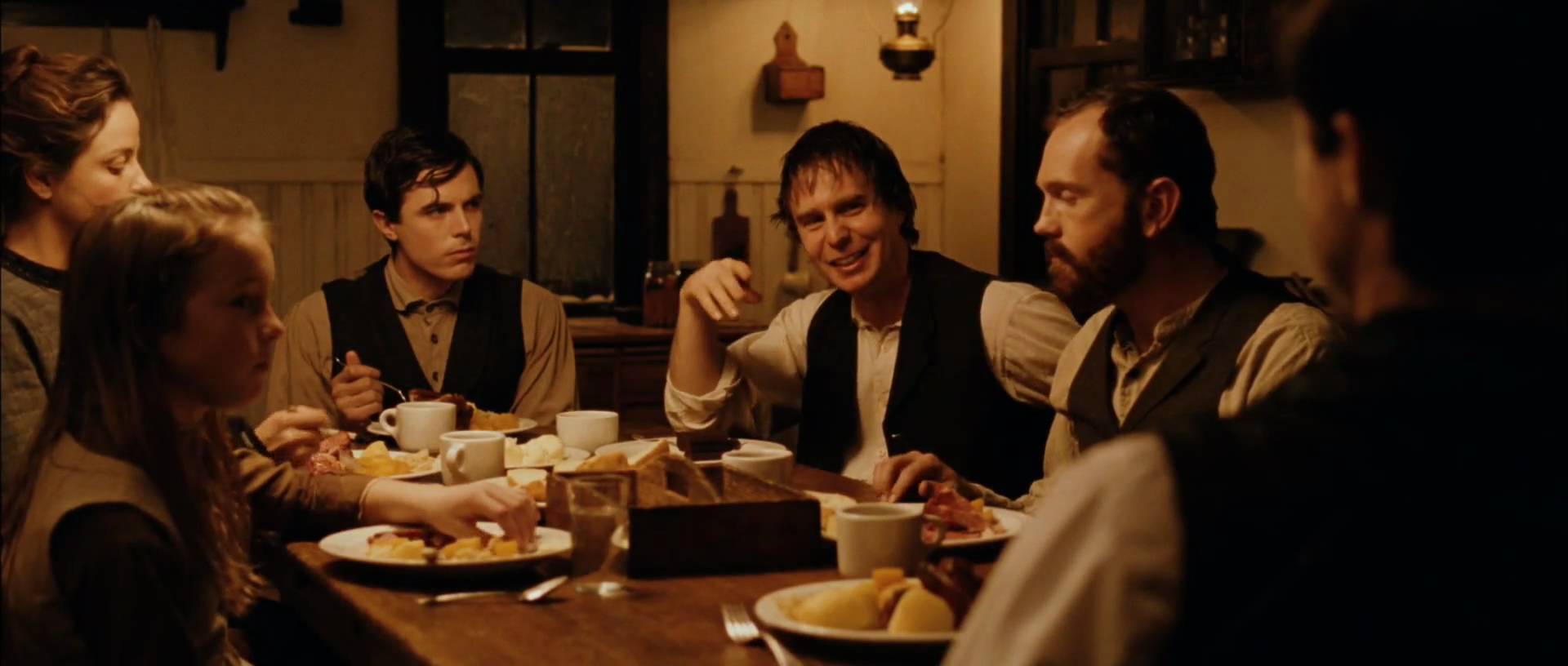
“Well, if you’ll pardon my saying so, I guess it is interesting, the many ways you and I overlap and what not. I mean, you begin with our daddies. Your daddy was a pastor of the New Hope Baptist Church; my daddy was a pastor of a church at Excelsior Springs… You’re the youngest of the three James boys, I’m the youngest of the five Ford boys. Between Charley and me, is another brother, Wilbur here, with six letters in his name; and between Frank and you is another brother, Robert, also with six letters. And my Christian name is Robert, of course. You have blue eyes, I have blue eyes. You’re five feet eight inches tall, I’m five feet eight inches tall… I must’ve had a list as long as your night shirt when I was twelve, but I seem to have lost some curiosities over the years.”
It’s a scene that showcases Bob’s neatly preserved obsession with Jesse and the outlaw’s ensuing curiosity over why the young man is so keen to stick by his side. “Can’t figure it out… do you wanna be like me or do you wanna be me?” Jesse wonders at one point. In a way it’s both. As an audience we are invited to see things from Bob’s viewpoint, at least when it comes to Jesse; we may have heard about him through legends and stories out with the film and are certainly led to expect he’s the insurmountable figure before we start to get to know him. We discover, just like Bob, that “he’s just a human being” the same as everyone else.
It exists as a film intrinsically part of the Western genre; once so ubiquitous in Hollywood but has become a scarcity to be cherished whenever one pops up. But it functions as a much more melancholy Western than usual, taking its time, soaking the experience with haunting atmosphere, less interested in glamourising violence itself as a thrilling piece of spectacle and more in exploring in the motivations behind, the proceeding regrets of, and ramifications for, those that perpetrate it.
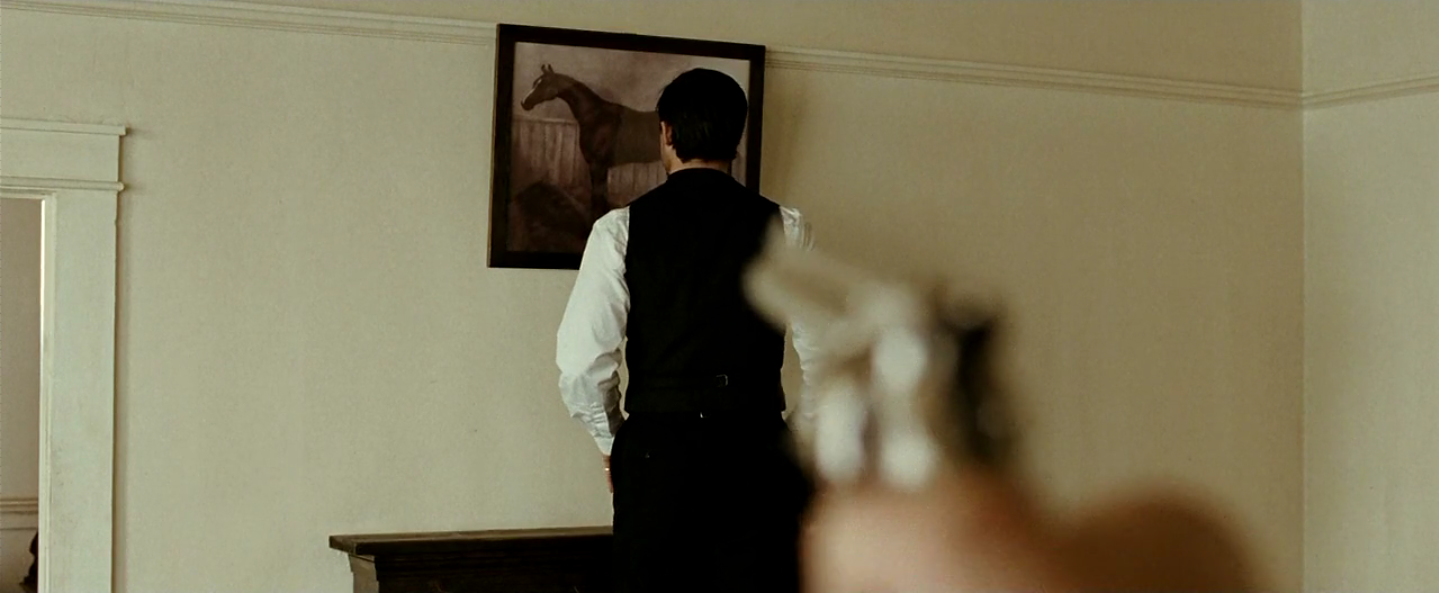
The film’s elongated titled reads like a headline in a newspaper of a bygone era. It spoils, for lack of a better word, the outcome. We know that Jesse James will die by film’s end and Robert Ford is the one who will pull the trigger. But, quite apart from the fact that the outcome is a famous historical fact chronicled many times in various forms throughout the ensuing years, it serves a specific purpose for the drama. From moment one the film is lent an air of anticipation, of sorrowful inevitability. It’s not about the what or even the why but the how. The context. The assassination itself is tragically showcased, Jesse feigning interest in cleaning a dusty picture, spotting Bob’s reflection as he points the gun at his back. Did Jesse allow Bob to kill him? Perhaps he saw a violent death at a young age as being inevitable and Bob being the one to do it would give it more meaning. The events leading up to the assassination are made to matter in a way they might not have otherwise and the aftermath given great dramatic weight.
If we were in any doubt of whose story the film is telling for the first couple of hours, we are in no doubt in the last half hour or so which chronicles what became of Bob and how his killing of his hero – and for the public a much loved heroic scallywag of America’s 19th century history – affected his life. That he would spend the next year making money out of his deadly deed by putting on a stage re-enactment, Bob becoming ever-more swallowed up by regret and bitter resentment of how he’s now viewed by the public, Charley both hardened and weighed down by his own part in the murder. Jumping forward a decade Bob is living a hollow existence, running his own saloon but still feeling the scornful eyes of the public burning a hole in the back of his head whenever he walks by and receiving angry letters for the decision that would define his life. By Bob’s own admission he was too young to see how it would look to people, that he didn’t get the applause he naively expected at the time, “that he missed the man as much as anyone.”
It’s in the film’s final moments that the tragedy of the piece slams home, when a complete stranger in the form of Edward O’Kelley – another admirer of Jesse’s with “nothing beyond a vague longing for glory and a generalized wish for revenge” – steps into the saloon to shoot Bob dead with a shotgun. The film’s ends with a half blurred still shot of Bob just before he’s killed, driving home the irony that despite Bob doing the bidding of the police force in killing Jesse and hoping for applause, he is the one viewed as the coward while the thieving and oftentimes violent Jesse becomes immortalized as a hero. Even Mr. O’Kelley, the narration tells us, would be petitioned for a pardon years later because the public still views Bob as less of a man and not worth living for the act he committed and Jesse considered more of a beloved hero than ever. “Robert Ford would only lay on the floor and look at the ceiling, the light going out of his eyes, before he could find the rights words.”
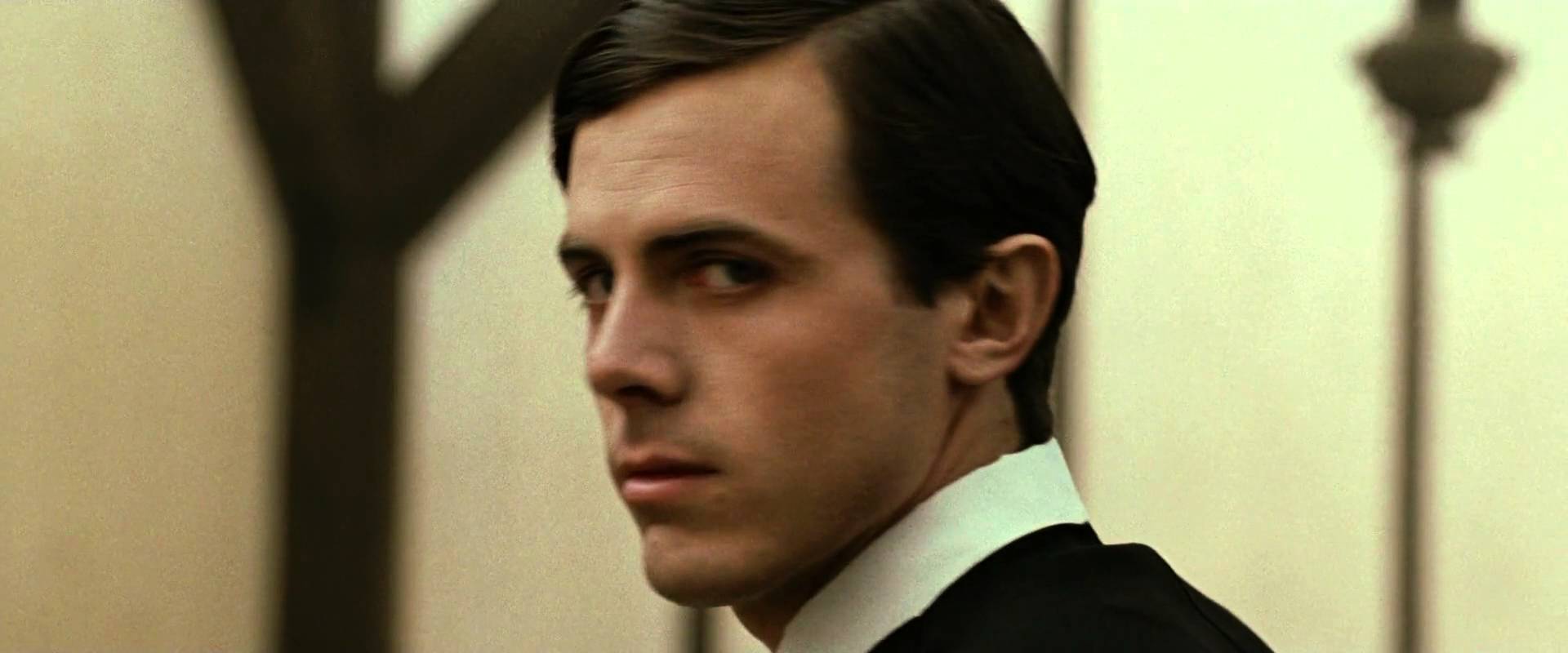
It’s a beautiful, haunting ending to a timeless and mesmeric film. I’ve seen it at least two dozen times since it was released and I only find more and more rich details, depth of emotion and aesthetic beauty every time. For the above reasons and more I genuinely believe it to be a high point of modern American cinema. I hope, at least a little, I’ve helped you feel the same way.
